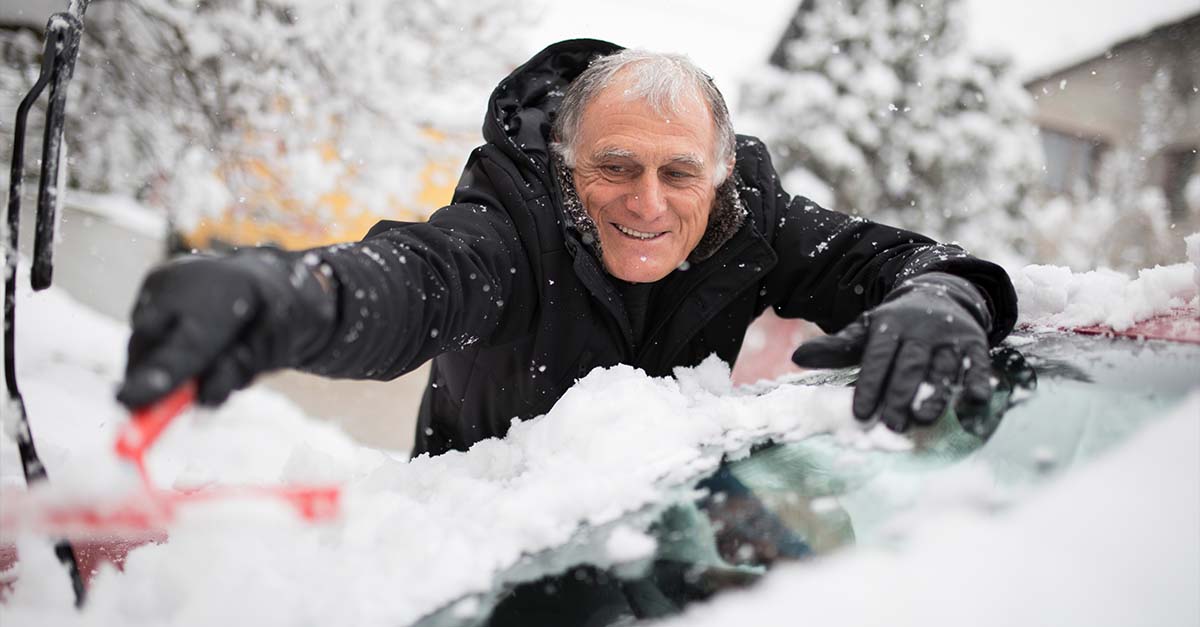For many, winter is the happiest time of the year. Families gather for the holidays and friends celebrate as they usher in another new year. Winter can also be a difficult time for older adults. The onset of cold weather can create hazardous conditions outside, and people often prefer to stay home when it’s more pleasant indoors, which can lead to social isolation and depression. Here are a few tips on how to maintain senior safety this winter.
Prepare for snow and ice
Whenever snow or ice appear in the forecast, bundle up with gloves, a heavy coat, a scarf, or other warm clothes to protect you from the cold. Wear shoes with non-skid soles, take your car in for regular check-ups and make sure that your snowblower is working. Put ice scrapers in your cars and keep shovels and a bucket of rock salt or other de-icing salt at the ready.
This last point is important, because an estimated 36 million older adults fall each year and slips and falls can cause serious injuries in older adults. So if you think it’s safe enough to go to outside but you’re still leery about driving, don’t hesitate to ask friends, family or neighbors to give you a ride or help with errands.
Stock up on food and blankets
When your front walk is crusted over with ice and you’ve heard news reports about accidents on the highways, it’s probably best to stay indoors. One measure you can take to ensure that you’re equipped to wait out the weather is to stockpile water bottles, a pantry of groceries (including non-perishable items like canned meats, vegetables and soups), and a week’s worth of medication. And be sure to keep warm blankets and extra layers of clothing in the house.
Make sure your generator’s working
Blizzards and snowstorms may sound picturesque, but winter weather can down power lines and snap off the electricity inside your home. To be prepared for a power outage, buy a portable generator, which should keep your electricity running even if you get cut off from your main power sources. Store a flashlight and extra batteries in an easy-to-reach place like a bedside table, buy a food thermometer, and assemble an emergency kit that might include extra cash, maps of your area and a first aid kit with relevant medications.
Connect with others
One aspect of senior safety that has more to do with mental rather than physical health is staying connected with others. People tend to stay indoors more often during the winter, but whenever you have the chance to catch up with friends and family, try to stay connected and engaged.
Call or Zoom with children or grandchildren who are out of town. When the weather permits, go mall-walking with a friend, join a book club, or have dinner at a neighbor’s house. Take every opportunity to stay active and invigorated with other people’s company, because a healthy social life correlates with fewer feelings of negativity – which is a great way to ward off the winter blues.
Keep safe this winter
At Atria, we understand the importance of social connection for older adults especially during a season when it’s harder for older adults to go outside. That’s why Atria residents enjoy winter events such as movies, workshops, group outings and engaging holiday programs – while maintaining flu and COVID health and safety measures.


